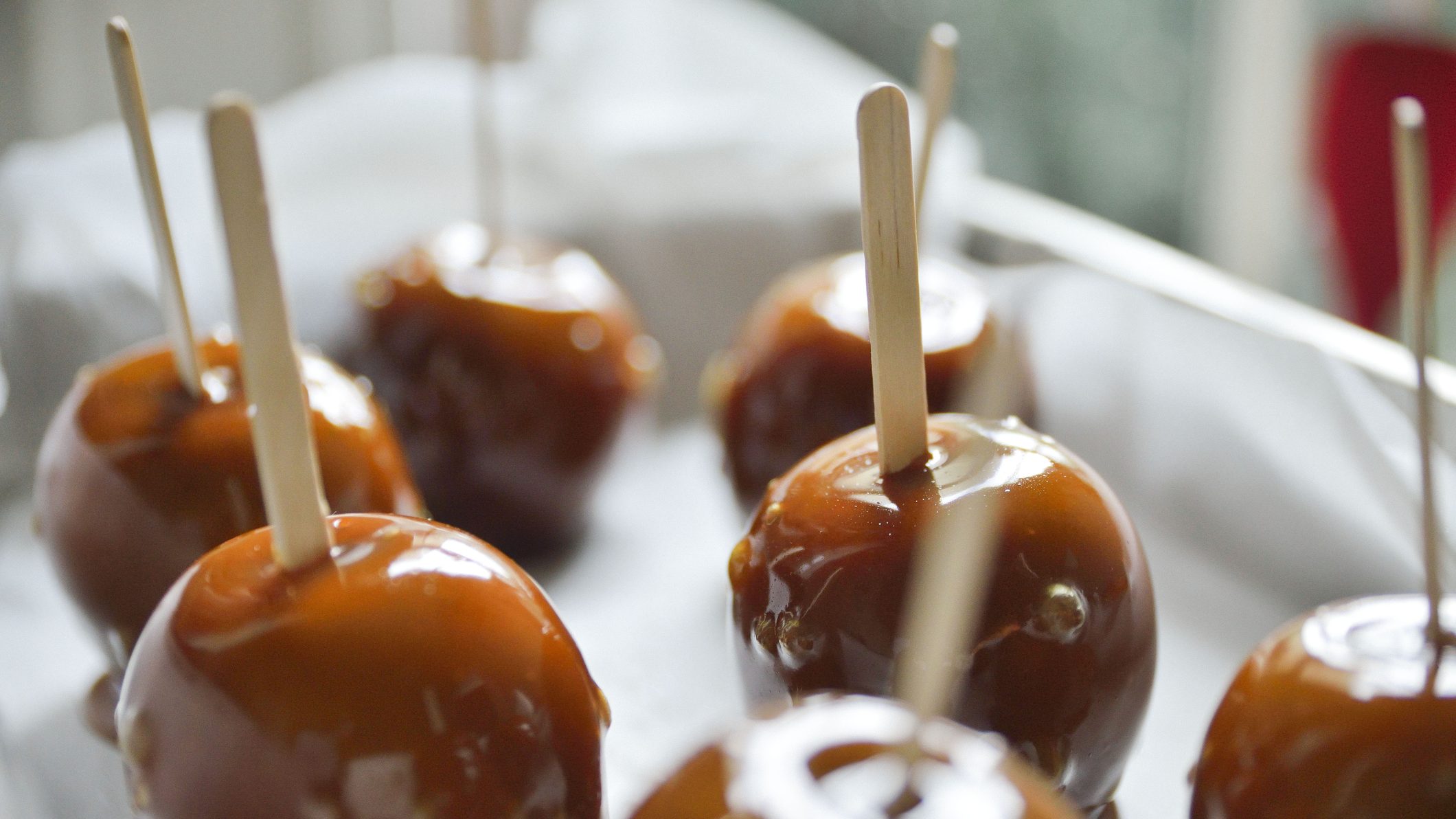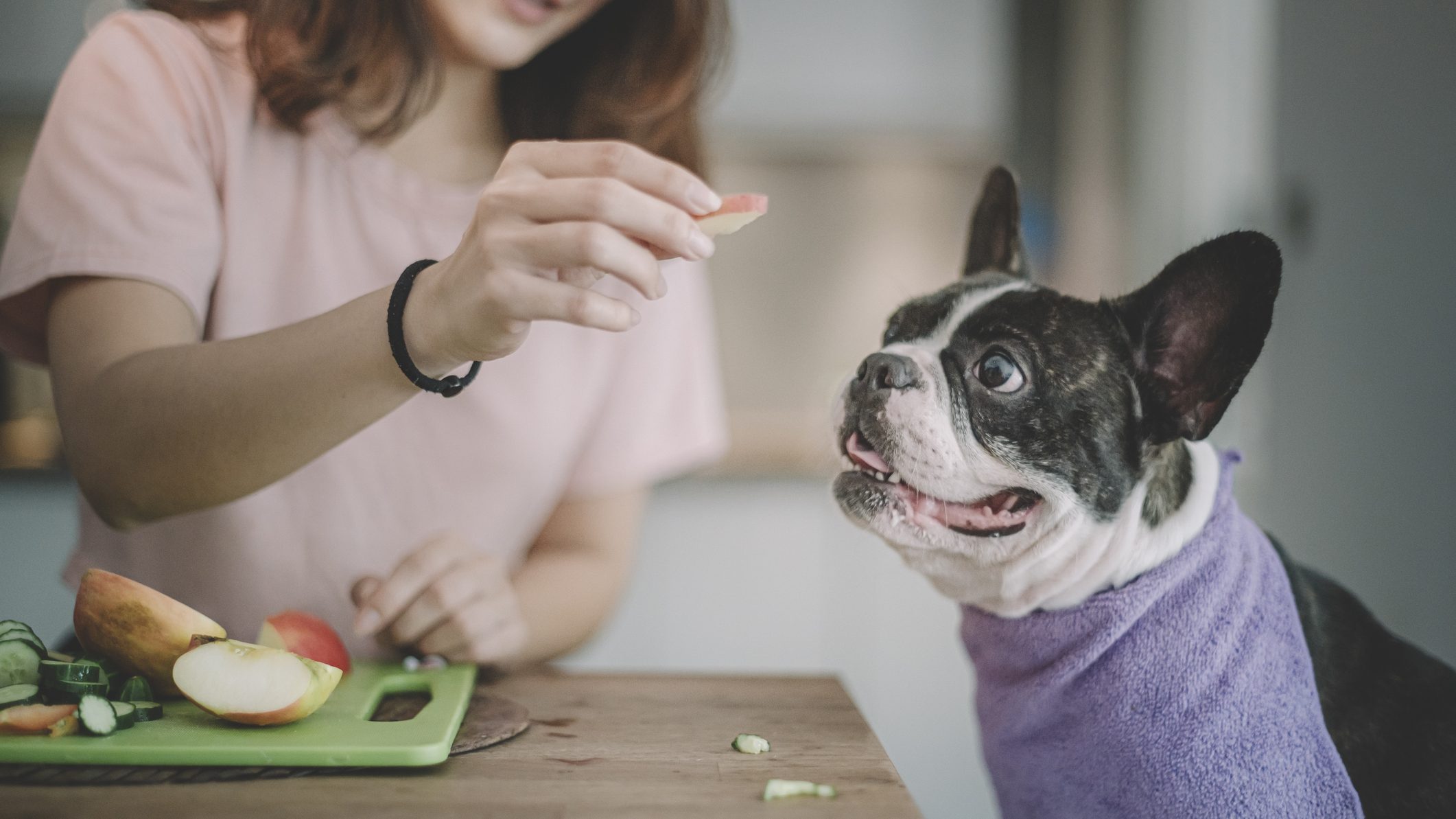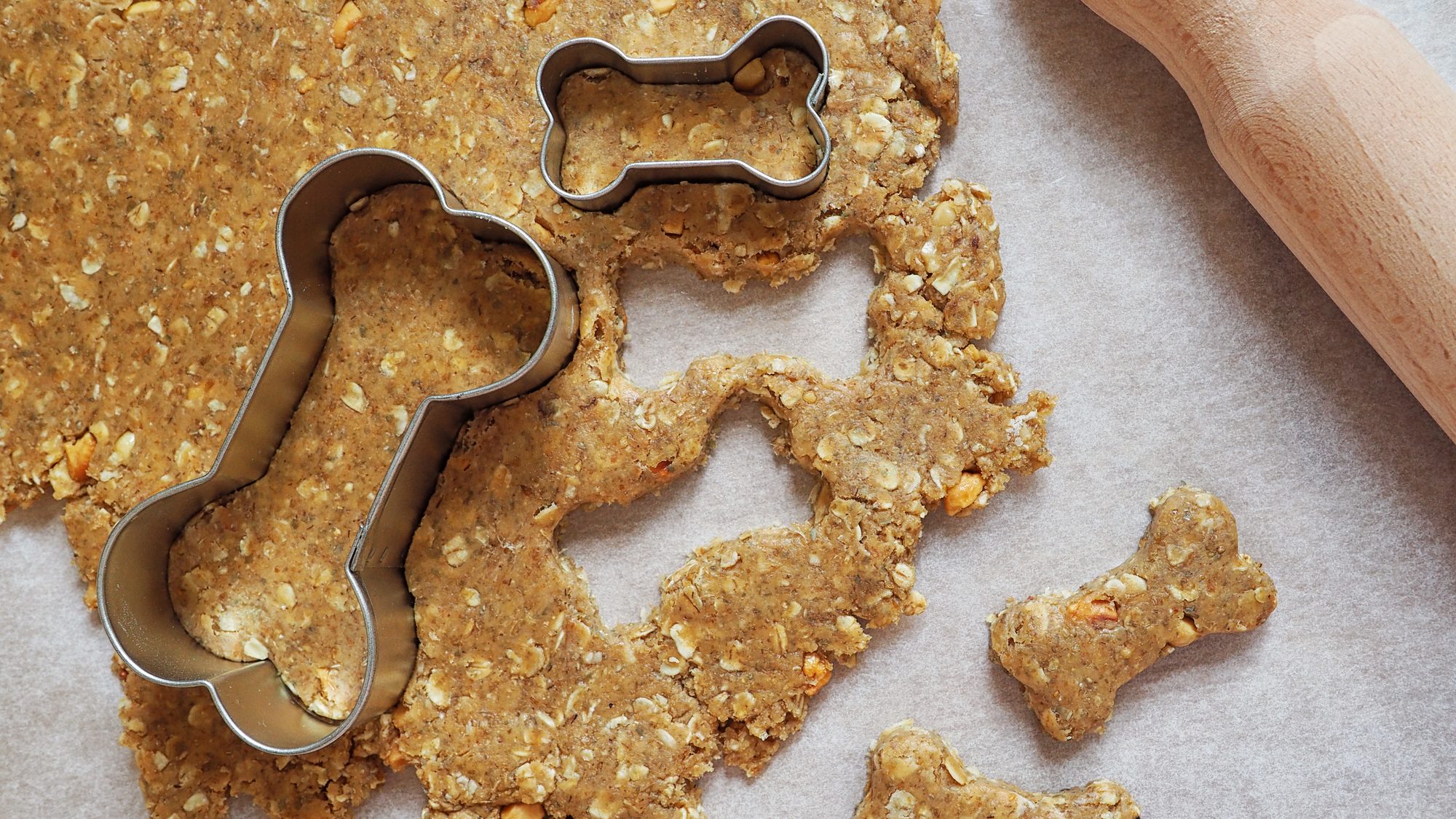
Can dogs eat caramel apples? No, while caramel is not explicitly toxic for dogs, it is comprised of raw sugar, which should not be included in a canine’s diet. Sugar isn’t good for any of us, really, but the issue compounds in a canine diet. Dogs who regularly consume sugar suffer from obesity, dental diseases, and obesity. With less avenues than humans for course correcting their health.
Before feeding your dog a caramel apple, we highly recommend that you seek guidance from your veterinarian. Here’s everything you should consider before you feed your dog anything made with raw sugar.
Is it Safe for Dogs to Eat Caramel Apples?

While apples are a highly nutritious treat for dogs, caramel apples are coated in raw sugar, which is simply what caramel is made from (outside of butter). The negative health impact of both sugar and butter negate the positive health benefits of apples. Apples are outstanding for your dog’s teeth and breath, but coated in sugar, it’s completely the opposite.
Apples contain the following beneficial nutrients:
- Vitamin C, or ascorbic acid, is a powerful antioxidant that defends both human and dog from harmful free radicals. Just one apple provides a human being with 10% of their daily recommended dose;
- Additional Antioxidants, such as quercetin, catechin, and chlorogenic acid, also support brain and muscle function with anti-inflammatory effects;
- Fiber serves to lower blood sugar levels, while nourishing good bacteria for strong digestive health;
- Carbs & Potassium are also present in large quantities, providing much-needed energy and heart-support;
Even with the health benefits of apples, though, moderation is still recommended due to sugar content. And that’s without a thick coat of extra sugary caramel! On their own, apples contain approximately 19 grams of sugar, which is enough to place them in the ‘occasional treat’ category.
- Is it Safe for Dogs to Eat Candy Corn?
- Is it Safe for Dogs to Eat Pancakes?
- Is it Safe for Dogs to Eat Doughnuts?
What Happens if My Dog Eats Caramel Apple?

There is no immediate toxicity danger for dogs who eat caramel, or caramel apples. However, the long-term health complications for dogs who regularly consume sugary foods are significant.
- Dental Caries (Cavities) In Dogs: Symptoms, Causes, & Treatments
- Dogs & Gum Disease: Everything You Need To Know
- Study Confirms Obesity Can Take 2.5 Years Off Your Dog’s Life
- Diabetes Insipidus & Diabetes Mellitus In Dogs: Causes, Symptoms, & Treatments
There are some short-term effects to be aware of, though. Sugar intake often causes a variety of behavioral issues. If you already have issues with your dog’s behavior, don’t think that a sugary treat will improve the situation.
Dogs who have consumed too much sugar often demonstrate the following behaviors:
- Lethargy & Stomach Upset: If your dog appears sluggish and lethargic, they’re likely experiencing the ‘sugar crash’ that we humans are all too familiar with. Or, the sugar intake has upset their stomach. Which may very well lead to vomiting or diarrhea, so be on the lookout;
- Choking or Trouble Breathing: If your dog appears to be having trouble breathing, or swallowing, they might be struggling with the density of caramel. This can cause your dog to choke, as this isn’t a viscosity that they often encounter;
- Hyperactivity: Just like toddlers, dogs can experience a good old fashioned sugar rush. If you already have behavioral issues with your dog, this can certainly exacerbate them. Even dogs that don’t have these kinds of issues, though, often demonstrate difficulty concentrating and elevated heart rates;
How to Safely Give Apples to Your Dog

Simple, but diligent, preparation ensures the safe feeding of apples for a dog.
- To start, thoroughly wash any store-bought fruit;
- Then, slice the apple open and fully remove the core and seeds. Apple seeds contain small amounts of cyanide, which can cause serious harm to a small dog, and can certainly cause discomfort for a larger breed. Removing the core also ensures that there’s nothing for your dog to choke on;
- Cut the apple into small, thin slices or cubes;
If your dog happens to get into your apple supply, or gets into a batch of fallen apples from a tree, keep close watch. As mentioned, apple seeds contain cyanide. This toxin blocks the cells from needed oxygen, which can cause heart and brain malfunction. If your dog shows any of the following symptoms, call the Pet Poison Hotline.
- Loss of Consciousness;
- Erratic or Slowed Heartbeat;
- Red-Tinted Mucus Within Mouth/Nose;
- Nausea, Vomiting, or Convulsions;
- Difficulty Breathing & Dilated Pupils;
Apple Homemade Dog Treats

Instead of giving your pup those sugar-laden apple foods, try making homemade dog treats with apple. There are a wealth of recipes out there for dog lovers, but here are a few of our absolute favorites.
- Apple Frozen Yogurt Doggy Pops: Apple pieces blended with a sugar and xylitol-free yogurt, frozen into a popsicle tray, makes for a delightful dog-safe frozen treat. Try it here;
- Apple Doggy Smoothie: Blend apples with other DogTime-approved fruits like strawberries or bananas to freshen up that doggy bowl. Try it here;
- Frozen Stuffed Apple KONG: Or, take that smoothie concoction and freeze it inside of your dog’s favorite KONG toy. This is an especially fun treat for your dog on a hot summer day. Try it here;
- DIY Dehydrated Apple Snaps: Store-bought apple chips usually come with a load of additives, preservatives, and extra sugar content. DIY them instead! With a dehydrator, make your own healthy apply snap treats. Try it here;






